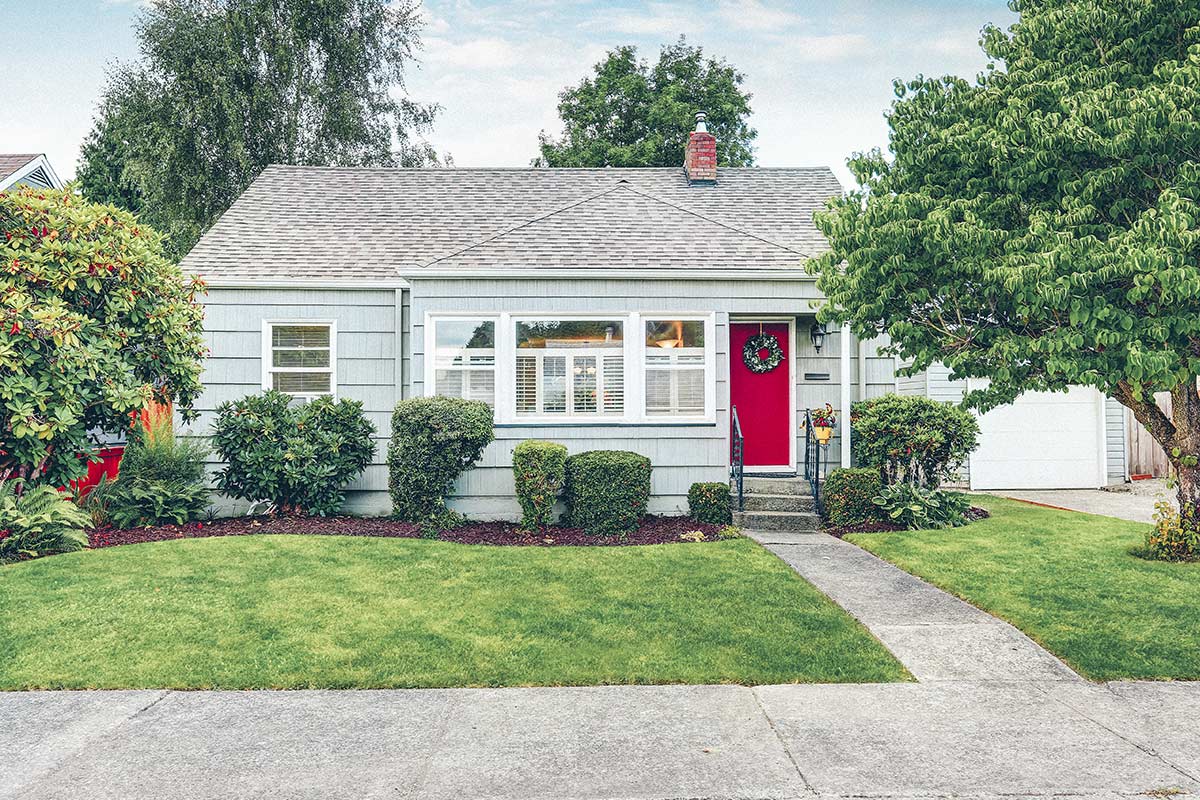
Income vs. Mortgage: How Much House Can You Afford?
Buying a home is one of the biggest and most exciting purchases you'll make in your lifetime.
It's not a decision you can make quickly or lightly, though. You—and anyone else you plan to purchase with—should carefully go through your finances to determine just how much home you can safely afford.
If that sounds like an intimidating or exhaustive process to you, read on. Mountain America Credit Union is here to help you determine how much house you can afford based on your income, mortgage payments and other real estate expenses.
Steps to calculate how much you can afford
There are a lot of steps to calculating how much house you can afford—but that shouldn't stop you. All the prep work you'll do to get into your dream home will not only give you a valuable look into your overall financial health, it can also serve as an opportunity to set you on a path toward responsible homeownership.
Here's a brief overview of the basic steps to get into your home:
- Gather all your financial information, including income and debts owed.
- Determine how much you want to use as a down payment.
- Shop around for mortgage loans.
- Look at other costs associated with homebuying—like HOA fees, interest rates, property taxes, closing costs, etc.
It may seem like a lot of work, but you'll have plenty of help along the way from realtors, lenders, your financial institution and more.
Now, let's dive into some of these steps a little further.
What is considered when I apply for a mortgage?
Lenders will want to know a few things about you before giving you a mortgage quote, so take a look at your overall household income and any debts you owe, such as car or student loan payments. To lenders, this debt-to-income ratio is one of the most telling pieces of information, so try to get your debts paid down as low as possible before applying for a mortgage.
How much down payment do I need?
Your down payment is an important factor in determining the true cost of a home. It's essentially a deposit that you put on a home to demonstrate to the seller and lender that you intend to purchase the property.
Generally speaking, the larger your down payment, the less you pay in overall interest for the home. Conventional wisdom has always suggested you need to have at least 20% of the total home value ready to put down on a home. But with today's loan options, that's not always true.
Some first-time homebuyer and VA loans require as little as 3% of the home's value as a down payment. Keep in mind, however, that you’ll pay more in interest using these types of loans.
Why should I shop around for a mortgage?
Mortgage lenders are just as diverse as financial institutions—different lenders could approve you for varying amounts, and each offer will come with its own unique terms.
Shop around for your mortgage with at least three different mortgage lenders before making a final decision—and be sure to look at all the loan terms closely. One lender may offer more money, but at a higher interest rate. Another may require you to purchase private mortgage insurance. Go with the option that works best with your personal finances.
Factor in additional costs
Once you have a rough idea of how much you can borrow for your home, you can move on to the fun part—shopping!
There isn't a set-in-stone formula for figuring out the true cost of a home, but there are a number of tools available to help you get a close estimate.
Use our mortgage calculator to apply for a mortgage, set up an appointment or get your instant mortgage quote. Plugging in numbers and playing around with different factors will help you get a rough idea of what you can expect to pay for a house based on the following:
- Mortgage loan amount
- Mortgage term (number of months)
- Annual interest rate
- Final sale price of property
- Annual property taxes
- Monthly private mortgage assistance fees
- Annual hazard insurance
After you've crunched those numbers, be sure to factor in other new home costs, like new appliances, ongoing repairs, routine services, moving fees, etc.
How to determine affordability?
You're nearly ready to go. But before you sign any papers, you need to be sure that you can comfortably afford the home. That means you can make the down payment, pay your monthly mortgage fees, handle the other homeowner-related costs we discussed plus afford the rest of your expenses for many months to come.
Consider your interest rate, for example, and how much it will increase the overall cost of your home. Can you still afford it? If you're unsure, check our current rates to find something that works for you.
You should also take stock of your savings. How much do you have set aside? Can any of it safely be put toward your down payment? Do you have an emergency fund set up? Having three to six months of living expenses set aside can prevent you and your family from going into debt when the unexpected happens—it can also help if you’re running a little short to make a mortgage payment. Just don’t forget to replenish any funds you use.
All these things go into determining the overall affordability of your home. As you shop, keep in mind that this is likely the biggest purchase of your life, and staying within your means ensures your home becomes an asset and safe haven—not a financial burden.
We know that buying a home can be complicated. Mountain America Credit Union is here to help with experts and tips for buying your home. Call today to speak to one of our friendly and professional experts today.
Related Articles

The Psychology of Emotional Investing

Early Mortgage Pay Off: Do or Don't?
